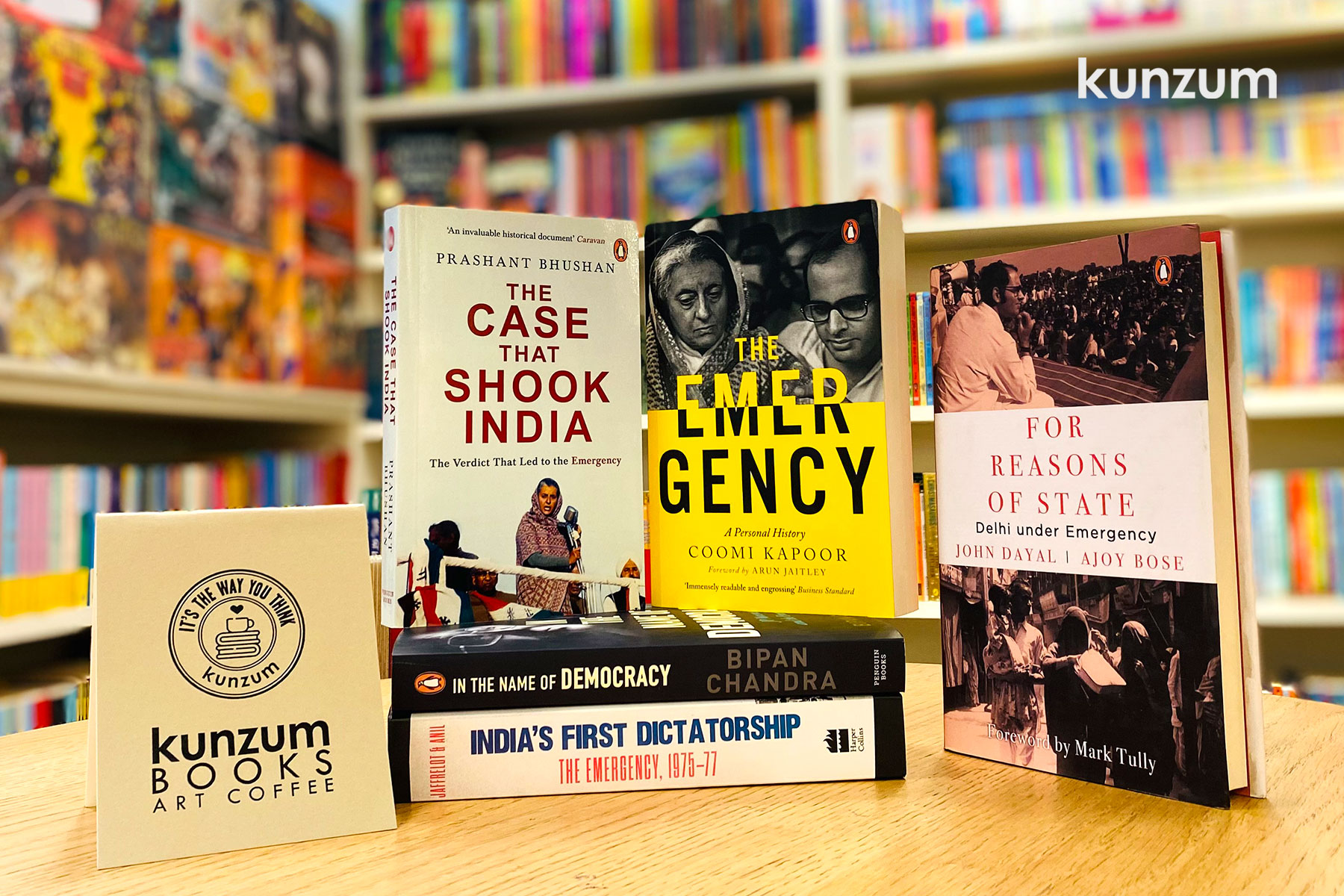
Understanding the Emergency, a watershed moment in Indian democracy, is crucial. A period of suspended civil liberties and political turmoil, the two years between 1975 and 1977 offer profound lessons about the fragility of democratic institutions and the enduring importance of safeguarding fundamental rights. Compressing nearly fifty-years worth of valuable retrospective analysis and years of academic discourse, our list of key books on the Emergency highlights the value of remembering our turbulent past and understanding the minute details that allowed for the historic halt of democratic process.
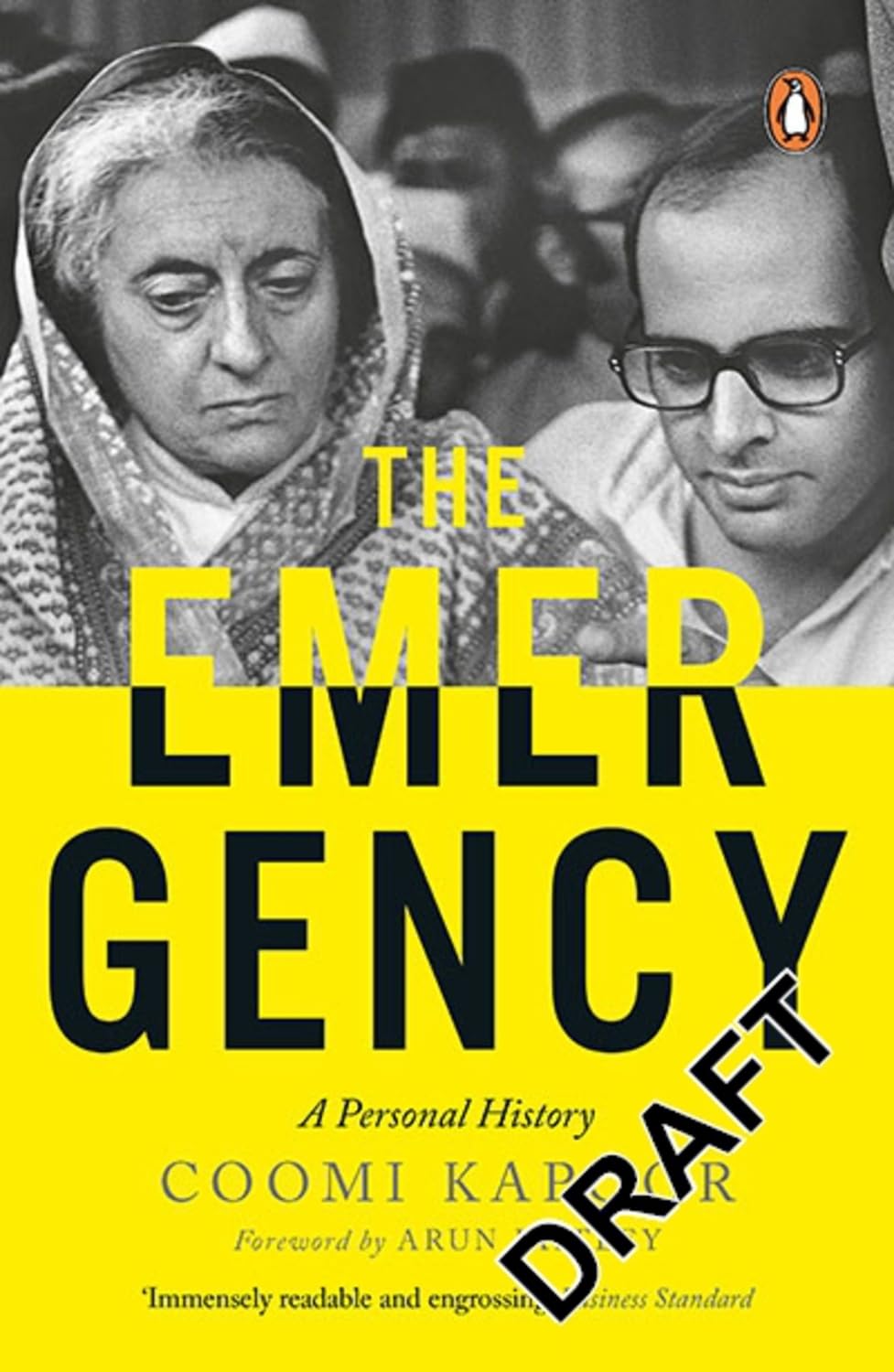
The Emergency: A Personal History by Coomi Kapoor
Sharing personal stories from the Emergency, Coomi Kapoor, a journalist at the time, talks about the profound everyday difficulties of the period. From the revocation of fundamental rights and liberties to a government-led silencing of the press, The Emergency portrays a muffled nation left to the abject chaos of a turbulent time. It details the fear experienced as well as the brave acts of some who courageously navigated those 19 long months.
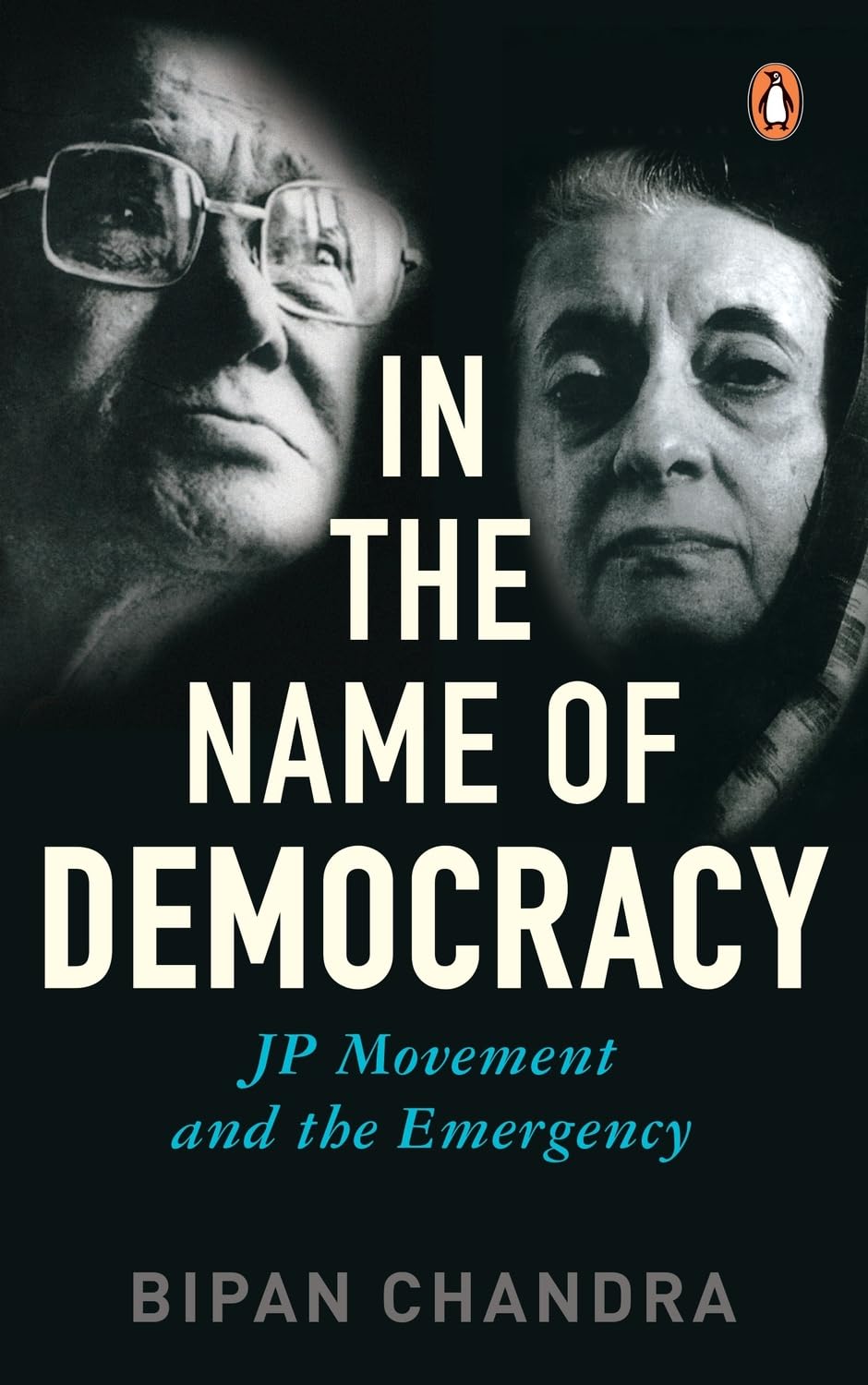
In the Name of Democracy by Bipan Chandra
Put simply: this book explains why the Emergency happened. It talks about a movement led by Jayaprakash Narayan that deeply threatened Prime Minister Indira Gandhi and thus attempts to locate the factors that led to what ensued. While confusing, the movement, says Bipan Chandra, had worrisome underpinnings. Unlike most books on the era, Chandra remembers to detail Gandhi’s role in ending the Emergency and calling for a fresh round of elections, thus offering perhaps the most complete picture of the era.

India’s First Dictatorship: The Emergency, 1975-1977 by Christophe Jaffrelot and Anil Pratinav
Showcasing the Emergency, as it was variedly experienced throughout the country, Jaffrelot and Pratinav’s book offers a layered and concise account of the historic period. Taking us through the tough and often inhuman realities of the time, it details experiences of forced sterilisations and mass evictions. Covering a range of public opinion of the time, the book talks of the surprising support for Gandhi’s decision as well as the Emergency’s effect on the nation’s view of democracy and governance.
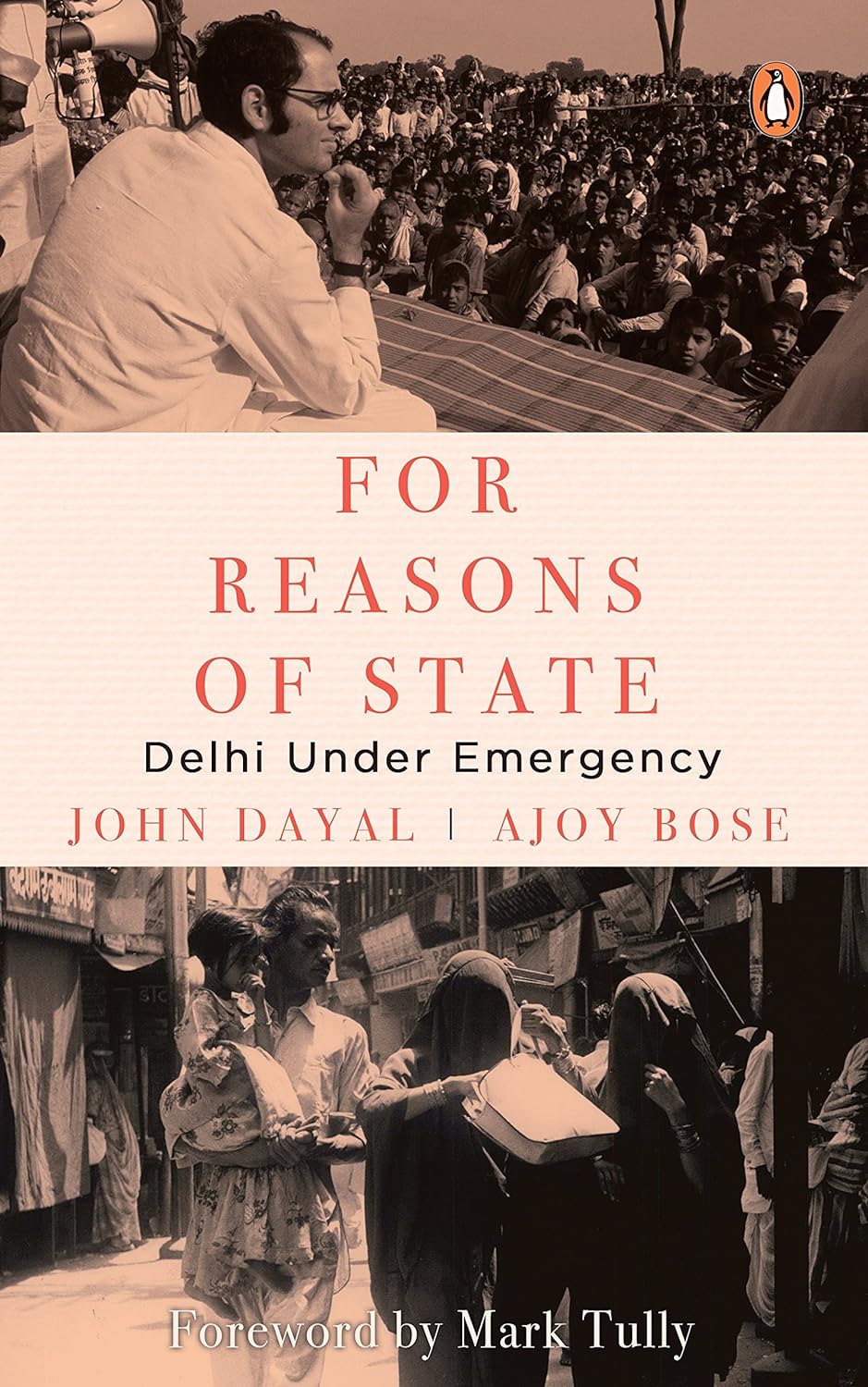
For Reasons of State: Delhi Under Emergency by Ajoy Bose & John Dayal
Focusing on what happened in Delhi during the Emergency, this book locates the national capital as an essential epicentre that truly captures the traumas of the event. Including stories of the many who lost their homes and were forced into displacement, it highlights the struggles and strenghth of those who lived through those deeply unstable and uncertain months.
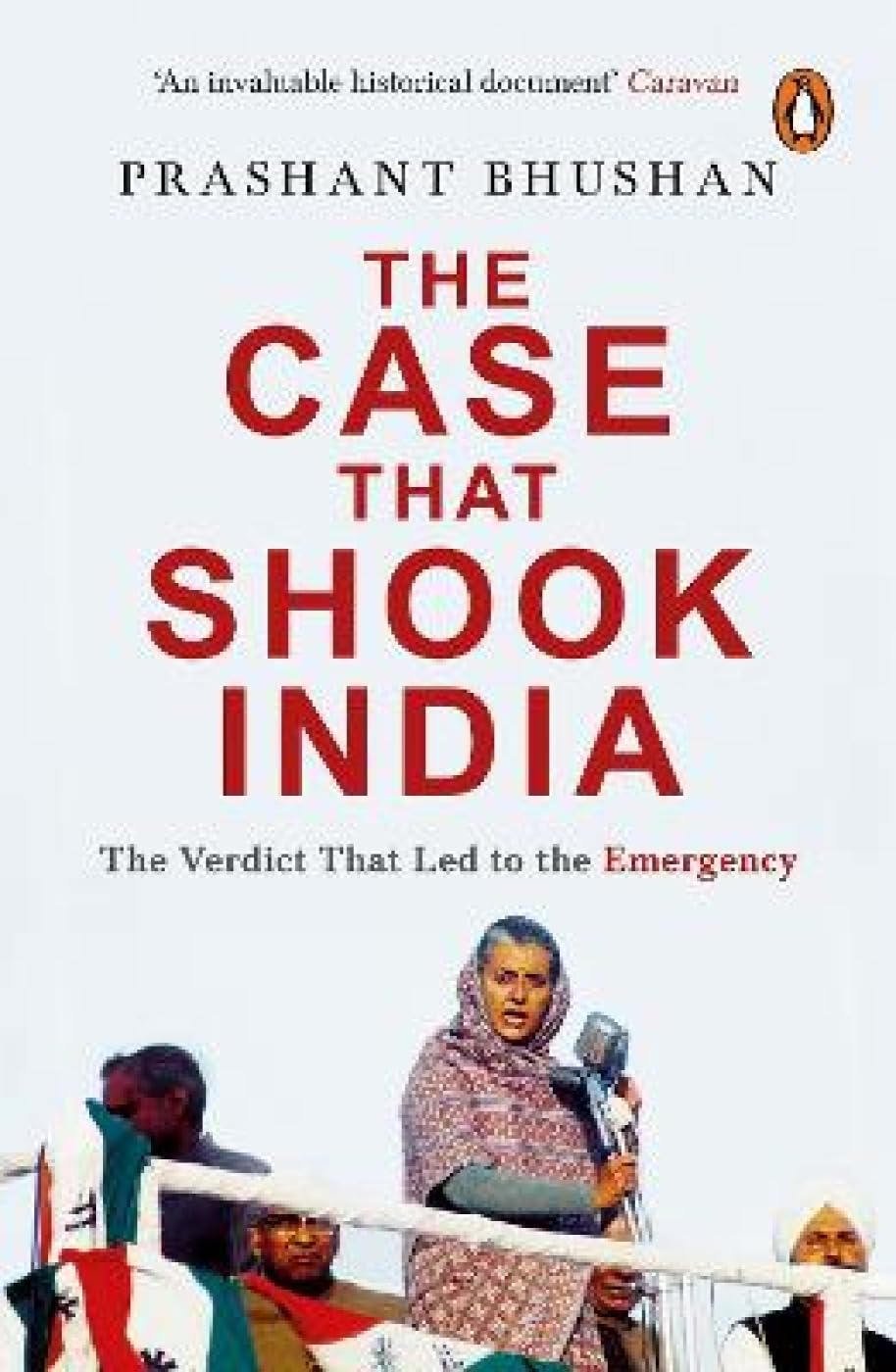
The Case That Shook India by Prashant Bhushan
Covering the biggest court case of the time, Bhushan’s The Case That Shook India is a deep dive into 1975’s ‘Indira Gandhi v. Raj Narain’– a case that found Prime Minister Indira Gandhi guilty of electoral malpractice, and a judgment that triggered all that led to the Emergency. In explaining the court procedures involved as well as the judgement’s implications for Indian democracy, the book showcases the importance of fair courts in tough times.
Pick up any of these Key Books on the Indian Emergency from any Kunzum store or WhatsApp +91.8800200280 to order. Buy the book(s) and the coffee’s on us.
